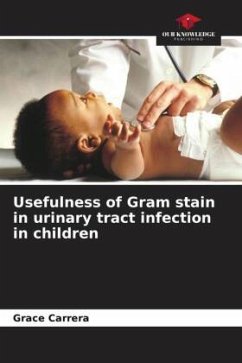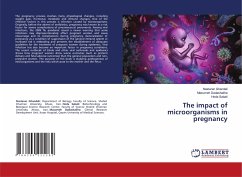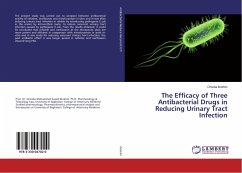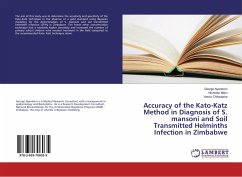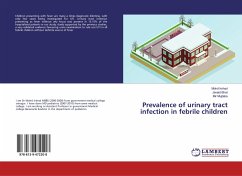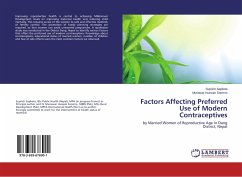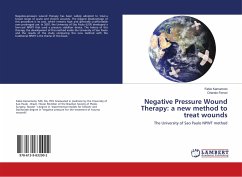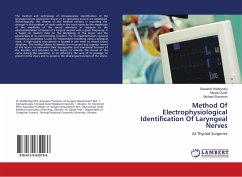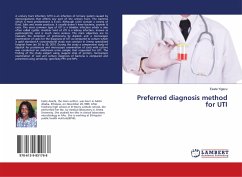
Preferred diagnosis method for UTI
Versandkostenfrei!
Versandfertig in 6-10 Tagen
27,99 €
inkl. MwSt.

PAYBACK Punkte
14 °P sammeln!
A urinary tract infection (UTI) is an infection of Urinary system caused by microorganisms that affects any part of the urinary tract. The bacteria which is most predominant is E.coli. Although urine contain a variety of fluid, Salts and waste products, it usually doesn't have bacteria, protein & casts. The most common type of UTI is a bladder infection which is also often called cystitis. Another kind of UTI is a kidney infection, known as pyelonephritis, and is much more serious. The main objectives are to evaluate the detection of proteinuria by dipstick and a microscopic examination of cas...
A urinary tract infection (UTI) is an infection of Urinary system caused by microorganisms that affects any part of the urinary tract. The bacteria which is most predominant is E.coli. Although urine contain a variety of fluid, Salts and waste products, it usually doesn't have bacteria, protein & casts. The most common type of UTI is a bladder infection which is also often called cystitis. Another kind of UTI is a kidney infection, known as pyelonephritis, and is much more serious. The main objectives are to evaluate the detection of proteinuria by dipstick and a microscopic examination of casts for the diagnosis of UTI as compared to culture which is gold standard.A cross-sectional study was conduct in Jimma specialized hospital from Jan 20 to 30, 2010. During the study a comparative study of dipstick for proteinuria and microscopic examination of casts with culture was conducted on midstream urine sample that requested for UTI. The finding of the study subject using reagent strip of protein, microscopic examination of cast and culture diagnosis of bacteria is compared and presented using sensitivity, specificity PPV and NPV.



